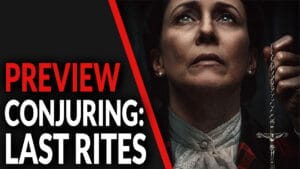X-Men

X-Men, released in 2000, is a significant milestone in the history of the X-Men Intellectual Property, marking a resurgence in the popularity of superhero films and setting the stage for a sprawling franchise. The movie, directed by Bryan Singer, serves as an introductory narrative to the world of mutants, individuals with extraordinary abilities due to genetic mutations.
The story of X-Men centers around the conflict between two groups: the X-Men, a team of mutants led by Professor Charles Xavier, and the Brotherhood of Mutants, led by Magneto. The plot begins with a young Rogue discovering her powers and accidentally putting her boyfriend into a coma. Her journey leads her to encounter Wolverine, a gruff and enigmatic mutant with rapid healing abilities and retractable claws coated in a mysterious metal called adamantium. They both eventually find sanctuary at Xavier’s School for Gifted Youngsters.
Here, Rogue learns about other mutants and the human-mutant conflict. Professor Xavier, a powerful telepath, believes in peaceful coexistence between humans and mutants. The school’s faculty includes Storm, who can control the weather, Cyclops, who emits powerful energy blasts from his eyes, and Jean Grey, a telekinetic and telepath. Magneto, whose real name is Erik Lehnsherr, argues for mutant superiority, believing that humans will never accept mutants and should be preemptively subdued.
The central conflict revolves around Magneto’s plan to use a device that artificially induces mutations to forcibly turn humans into mutants. His logic is that if world leaders experience life as a mutant, they will end hostilities towards mutants. However, the process is lethal, as demonstrated when Senator Kelly, initially an anti-mutant advocate, is transformed and subsequently dies.
The narrative converges on an attack on Liberty Island, where Magneto plans to use Rogue to power his mutation device. The X-Men race against time to stop him. In a climactic battle, the X-Men manage to thwart Magneto’s plan, save Rogue, and dismantle the mutation machine. Magneto is captured, but the uneasy peace between mutants and humans remains fragile.
X-Men is lauded for several reasons. It reinvigorated the superhero genre, which had been waning in popularity. The movie’s casting was stellar, with Hugh Jackman’s portrayal of Wolverine becoming iconic. Patrick Stewart as Professor X and Ian McKellen as Magneto brought gravitas and depth to their roles. The special effects were cutting-edge for the time, and the film effectively balanced character development with action sequences. Notably, the movie explored themes of discrimination and acceptance, resonating with audiences and adding layers of complexity to its characters.
However, the film was not without its critics. Some felt that the storyline was too ambitious, attempting to introduce too many characters, making it difficult for newcomers to fully grasp the X-Men universe. Additionally, fans of the original comics and animated series pointed out deviations from the source material, including character designs and backstories. Nevertheless, these criticisms did little to overshadow the film’s broad appeal.
Before this live-action film, the X-Men had been previously adapted into animated form, most notably in the highly acclaimed X-Men: The Animated Series, which ran from 1992 to 1997. The animated series was a success, beloved by fans for its faithful adaptation of comic storylines and character development. The tone of the series was more colorful and closer to comic book aesthetics, whereas the 2000 film opted for a darker, more realistic tone, with muted costumes that eschewed the bright spandex for leather suits.
X-Men was not just a box office success but also a cultural phenomenon. It opened the door for an entire genre of superhero movies that dominated the early 21st century. Its success paved the way for an expansive franchise, including direct sequels, prequels, spin-offs, and reboots. The film remains a cornerstone in the tapestry of the X-Men IP, setting both narrative and aesthetic precedents that continue to influence adaptations to this day.
X2

X2, also known as X-Men 2, is a pivotal entry in the X-Men film franchise, released in 2003. Building on the foundation laid by its predecessor, X-Men, X2 dives deeper into the complexities of its characters and expands the universe of mutants struggling for acceptance in a world that fears them.
The story of X2 revolves around a conspiracy against mutants, led by the villainous Colonel William Stryker. Stryker, a military scientist with a deep-seated hatred for mutants, orchestrates an attack on the President of the United States, framing mutants for the assault to justify his agenda against them. This prompts Professor Charles Xavier and his team of X-Men to investigate. Stryker’s plan involves a brainwashed and mentally controlled mutant, Nightcrawler, who is manipulated to carry out the attack.
As the plot unfolds, Stryker’s ultimate goal is revealed: using his son Jason, a powerful telepath, to infiltrate and control Professor Xavier’s mind. Stryker intends to use Xavier’s telepathic abilities, amplified by Cerebro, to locate and exterminate all mutants. To achieve this, Stryker captures Xavier and uses the abducted children of the X-Men, including Cyclops and Professor X himself, as leverage. The X-Men, alongside new allies like Nightcrawler and former adversaries like Magneto and Mystique, must thwart Stryker’s plan.
The film explores themes of tolerance, prejudice, and identity, reflecting real-world issues through the lens of its mutant characters. The X-Men, led by Wolverine, Storm, and Jean Grey, are forced into an uneasy alliance with Magneto and Mystique, highlighting the complexity of their relationships and the shifting lines between heroism and villainy.
X2 is widely regarded as a superior sequel, praised for its deeper character development, more intricate storyline, and stunning visual effects. The ensemble cast, including Hugh Jackman as Wolverine, Patrick Stewart as Professor X, Ian McKellen as Magneto, and Halle Berry as Storm, delivers compelling performances that bring their comic book counterparts to life with emotional depth and nuance.
The action sequences in X2 are notable for their intensity and creativity. Wolverine’s berserker rage in the mansion raid, Nightcrawler’s acrobatic assault on the White House, and the climactic battle at Stryker’s base showcase the film’s ability to blend superhero spectacle with grounded, visceral combat.
However, X2 is not without its criticisms. Some viewers felt that certain characters were underutilized, with Cyclops and Storm receiving less screen time compared to Wolverine and Jean Grey. Additionally, while the film’s narrative complexity is generally seen as a strength, it also results in a dense plot that can be challenging to follow for those not familiar with the X-Men universe.
Compared to the first film, X2 expands significantly on the X-Men lore. The original X-Men movie introduced audiences to the central conflict between mutants and humanity, establishing key characters and their motivations. X2 delves deeper into the personal histories and traumas of these characters, particularly Wolverine’s enigmatic past and Stryker’s connection to it. This sequel also broadens the scope of the mutant world, introducing new characters like Nightcrawler and exploring the dark side of humanity’s fear of the unknown.
The X-Men franchise, starting with the 2000 film, marked a significant success in the realm of superhero movies, helping to pave the way for the genre’s resurgence in the 21st century. X2 built on this success, receiving critical acclaim and box office success, solidifying the X-Men’s place in popular culture.
Overall, X2 is celebrated for its ambitious storytelling, character depth, and thrilling action. It effectively balances multiple plot threads and a large ensemble cast, contributing to the ongoing success and popularity of the X-Men film series. Its impact is evident in how it helped shape the superhero genre, setting a high bar for subsequent films in the franchise and beyond.
X-Men: The Last Stand

X-Men: The Last Stand, released in 2006, stands as the third installment in the original X-Men trilogy. It was directed by Brett Ratner, following the departure of Bryan Singer, who directed the first two films. The movie is set in a universe where mutants, individuals with extraordinary abilities, exist among ordinary humans. The story primarily revolves around a supposed cure for mutation developed by Worthington Labs, which ignites a violent response from mutant factions and presents a profound choice for mutants and the greater society alike.
The narrative begins with the resurrection of Jean Grey, who had sacrificed herself in X2: X-Men United. Jean returns as the dangerously powerful Phoenix, a being of immense telepathic and telekinetic abilities. Her uncontrolled power and altered personality create internal conflict within the X-Men. The return of Jean coincides with the revelation of the mutant cure. The cure is sourced from a young mutant named Jimmy, also known as Leech, whose ability is to nullify the powers of other mutants.
Magneto, the antagonist once again portrayed by Sir Ian McKellen, views the cure as a threat to mutant kind. He unites a Brotherhood of Mutants to annihilate the cure, igniting a war against humans and the peaceful mutants who align somewhat reluctantly with the humans to avoid potential genocide. The X-Men, led by Wolverine and Storm, stand against Magneto’s forces in a climactic battle on Alcatraz Island, where Worthington Labs is producing the cure.
The movie’s portrayal of major characters met mixed reactions. Hugh Jackman’s Wolverine and Halle Berry’s Storm had more prominent roles compared to prior films, increasingly shouldering leadership responsibilities in the absence of Professor X, whose character, played by Patrick Stewart, meets a shocking fate early in the film. The transformation of Jean Grey into the Phoenix, played by Famke Janssen, while potentially compelling, faced criticism for underdeveloped narrative exploration.
X-Men: The Last Stand diverged significantly in tone and pacing from its predecessors. Compared to Singer’s directorial approach, Ratner’s film adopted a faster pace and grander action sequences, sometimes at the expense of character development and nuanced storytelling. While the earlier films balanced characterization with enthralling action, The Last Stand received critique for its overcrowded cast and the underutilization of key characters such as Cyclops, portrayed by James Marsden, whose limited screen time left many fans dissatisfied.
Commercially, the film achieved success, grossing over $450 million worldwide. However, it was met with a polarized reception from critics and fans alike. Some appreciated the visual spectacle and scaled-up combat scenes, whereas others lamented its perceived lack of depth and cohesion in storylines.
The movie marked the end of an era for the X-Men cinematic universe as originally conceived. Despite its commercial success, the discordant critical reception suggested unmet potential, resulting in recalibrations in the form of subsequent films that explored alternate timelines, prequels, and reboots, such as X-Men: First Class and Logan.
The X-Men series, starting with the first film in 2000, significantly influenced the superhero genre, paving the way for the modern era of comic book adaptations. The cohesive blend of societal themes surrounding discrimination and acceptance with thrilling action captivated audiences globally, cementing its status as a beloved franchise. The mixed legacy of The Last Stand, as both a commercial hit and critical miss, underscores the complexities of concluding a beloved trilogy in a manner pleasing to all factions of its diverse audience.
X-Men Origins: Wolverine

X-Men Origins: Wolverine, released in 2009, is a pivotal entry in the expansive X-Men film Franchise, serving as a prequel that delves into the backstory of one of the series’ most beloved characters, Wolverine, portrayed by Hugh Jackman. X-Men Origins: Wolverine was also the first appearance of Deadpool! The narrative takes viewers through the early life of James Howlett, later known as Logan, from his traumatic childhood in the 19th century, through his years fighting alongside his half-brother Sabretooth, to his involvement in the Weapon X program.
The film begins with young James discovering his mutant powers when bone claws emerge from his hands after witnessing his father’s murder. This revelation sets him on a journey where he grapples with his feral instincts and complex family dynamics. Logan and Victor are depicted as near-immortal warriors, fighting in various wars over the decades, showing their unbreakable bond and shared adversities.
The turning point in Logan’s life comes when he and Victor are recruited by Major William Stryker for a covert military unit composed of other mutants. Disillusioned by the team’s brutal methods, Logan eventually leaves, seeking a quiet life in the Canadian Rockies with his girlfriend, Kayla Silverfox. However, his past catches up with him when Victor, feeling betrayed, seemingly kills Kayla, prompting Logan to seek revenge.
To better fight his brother, Logan agrees to undergo an experimental procedure conducted by Stryker, which bonds the indestructible metal adamantium to his skeleton, turning him into the ultimate weapon. It is after this procedure that Logan takes the name Wolverine. However, he soon discovers Stryker’s true intentions of manipulating mutants for his own gain, including the creation of a super-powered mutant named Deadpool, played by Ryan Reynolds. The narrative culminates in a climactic battle at an island laboratory, where Logan confronts both Stryker and Deadpool, ultimately opting to erase his painful memories to cope with the loss and betrayal he has endured.
X-Men Origins: Wolverine received a mixed reception from critics and audiences alike. On one hand, Hugh Jackman’s performance as Wolverine remained a highlight, praised for its depth and intensity. The film’s action sequences and special effects, particularly the depiction of Wolverine’s adamantium claws, were also well-received. Additionally, Liev Schreiber’s portrayal of Victor Creed was noted for its menacing presence and emotional complexity.
However, the movie faced significant criticism on several fronts. The narrative was viewed by many as convoluted, with an over-reliance on subplots and characters that were not fully fleshed out. The portrayal of Deadpool, in particular, received backlash from fans, as it deviated significantly from the character’s comic book origins, stripping him of his signature wisecracks and giving him an overpowered yet mute form.
Compared to previous entries in the X-Men series, such as X-Men (2000), X2 (2003), and X-Men: The Last Stand (2006), X-Men Origins: Wolverine was seen as a step down in terms of storytelling cohesion and character development. The earlier films had focused on ensemble casts and broader themes of discrimination and identity, which resonated more strongly with audiences. They were credited with revitalizing the superhero genre and were commercially successful, contributing to the burgeoning popularity of superhero films in the 2000s.
Despite its mixed reviews, X-Men Origins: Wolverine was a commercial success, earning over $373 million worldwide, indicating the enduring appeal of the character and the franchise. The film’s release also showcased the potential for exploring individual backstories within the X-Men universe, paving the way for future spin-offs and prequels. The movie’s legacy is a blend of admiration for Jackman’s iconic portrayal and disappointment with its narrative execution, yet it remains an integral chapter in the ongoing saga of Marvel’s mutants.
X-Men: First Class

X-Men: First Class, released in 2011, is an integral installment in the broader X-Men cinematic universe. The film, directed by Matthew Vaughn, explores the origins of several key characters within the X-Men franchise. It serves both as a prequel to the previous X-Men films and as a soft reboot. The story is set against the backdrop of the 1960s and intertwines the emergence of mutants with real historical events, most notably the Cuban Missile Crisis.
The plot centers on two central figures: Charles Xavier, portrayed by James McAvoy, and Erik Lensherr, played by Michael Fassbender. Charles, a telepathic mutant, and Erik, who can control magnetic fields, start as allies but eventually become adversaries, with Charles adopting the identity of Professor X and Erik becoming Magneto. The story unfolds as Charles and Erik discover their mutant abilities and their ideological differences come to a head. Together, they recruit other young mutants to form a team that will confront the malevolent Sebastian Shaw. Shaw, played by Kevin Bacon, seeks to incite a nuclear war to eradicate non-mutant humans and establish mutants as the dominant species.
The mutants gather include Raven Darkhölme (Mystique) played by Jennifer Lawrence, Hank McCoy (Beast) played by Nicholas Hoult, and several others with distinct and varied abilities. The dynamic among these characters provides both conflict and camaraderie. The climax features an intense confrontation during the Cuban Missile Crisis, where the fate of the world hangs in the balance.
Several aspects of X-Men: First Class stand out as particularly commendable. First, the performances are generally strong, with McAvoy and Fassbender providing deeply engaging portrayals of young Professor X and Magneto. The film also excels in its period setting, integrating the look and feel of the 1960s into its narrative seamlessly. Vaughn’s direction and the striking cinematography add visual flair, particularly in the action sequences which are both thrilling and inventive.
However, the movie is not without its flaws. Some critics and fans pointed to inconsistencies in continuity when compared to its predecessor films, such as the timeline and the character arcs. Additionally, while many praised the character development of Xavier and Magneto, some felt that other characters, such as Emma Frost or Riptide, were underdeveloped and served more as plot devices than fully fleshed-out individuals.
Comparing X-Men: First Class to its predecessors like X-Men (2000) and X2: X-Men United (2003), significant differences emerge. The earlier films directed by Bryan Singer were more modern in their setting and tone. They focused on the adult versions of the characters, with Patrick Stewart and Ian McKellen playing older Professor X and Magneto, respectively. X-Men: First Class, by shifting to a younger cast and an earlier time period, offers a fresh take. While the original films were successes in establishing the franchise, First Class breathed new life into it, reintroducing characters and setting the stage for a new series of films.
In terms of success and popularity, X-Men: First Class was well-received by both critics and audiences. It holds an impressive rating on Rotten Tomatoes and was commended for reinvigorating the series after the lukewarm reception of films like X-Men: The Last Stand (2006) and X-Men Origins: Wolverine (2009). The interplay between McAvoy and Fassbender received particular acclaim, and the movie’s historical integration was appreciated for added depth and originality.
Overall, X-Men: First Class occupies a pivotal place within the broader X-Men IP. It reinvigorated the franchise, provided deep character exploration, and laid the groundwork for subsequent films. Despite its imperfections, it remains a beloved chapter in the X-Men saga, respected for its ambition and its ability to both honor and renew the expansive mutant lore.
The Wolverine

The Wolverine, released 2013, stands as a unique entry within the X-Men cinematic universe, bringing a fresh perspective to the beloved character of Logan, also known as Wolverine. Directed by James Mangold, The Wolverine is set after the events of X-Men: The Last Stand (2006), delving into Logan’s struggle with his grief over Jean Grey’s death and his quest for redemption.
The movie commences with Logan leading a secluded life in the Canadian wilderness, haunted by memories of Jean Grey. His solitary existence is interrupted when a mysterious stranger named Yukio tracks him down. Yukio, portrayed by Rila Fukushima, informs Logan that her employer, Yashida, an old acquaintance whom Logan once saved during World War II, is on his deathbed in Japan and wishes to say his final goodbyes. Upon arriving in Tokyo, Logan discovers that Yashida, now a powerful and dying industrialist, harbors ulterior motives. Yashida offers Logan a chance to end his immortality and live a normal life by transferring Logan’s healing powers into himself.
As the narrative unfolds, Logan becomes entangled in a maelstrom of familial intrigue and betrayal, spearheaded by Yashida’s scheming granddaughter, Mariko, and her ruthless fiancé, Noburo. Additionally, Logan must confront the deadly mutant Viper and the silver-armored giant known as the Silver Samurai. The story culminates in a climactic battle where Logan, despite facing immense physical and emotional adversities, reclaims his will to live and protect those he cares about.
The Wolverine marked a significant departure from its predecessors in terms of tone and setting. Unlike the previous X-Men ensemble films or the critically panned X-Men Origins: Wolverine (2009), which was laden with convoluted plotlines and character overload, The Wolverine embraces a more focused narrative. By relocating the storyline to Japan, the film leverages the country’s rich cultural backdrop, embracing elements of samurai lore, honor, and tradition. This not only enriches the visual aesthetic but also presents an intriguing counterpoint to Logan’s Western sensibilities.
One of the movie’s notable strengths is Hugh Jackman’s performance as Logan. Displaying a remarkable blend of physicality and emotional depth, Jackman captures the essence of a tormented hero grappling with his past and uncertainty about the future. The film’s action sequences, particularly the breathtaking fight atop a speeding bullet train and the intense, choreographed battles, exemplify Mangold’s effective direction, highlighting Logan’s feral combat style and relentless determination.
However, The Wolverine is not without its flaws. Despite an engaging first two acts, some criticism has been directed towards the film’s third act, especially the climax involving the Silver Samurai. Critics argue that the battle devolves into a more conventional superhero showdown, somewhat undermining the grounded and character-driven approach established earlier. The character development of the antagonists, primarily Viper, is also perceived as lacking, as her motivations and backstory remain ambiguously defined.
In terms of continuity, The Wolverine acts as a bridge between the earlier X-Men films and the subsequent ones. It deviates from the ensemble-driven approach of X-Men: The Last Stand, choosing instead to delve deeper into Logan’s psyche. Unlike X-Men Origins: Wolverine, which attempted to cram in numerous characters and subplots, The Wolverine benefits from its more singular focus, allowing for a richer exploration of its titular character. The film was generally well-received, with praise for its serious tone and Jackman’s performance, though some deviations from the source material and the aforementioned climax received criticism.
Ultimately, The Wolverine was a commercial success, bolstering the franchise’s appeal. It set the stage for the critically acclaimed Logan (2017), also directed by Mangold, which provided a fittingly poignant conclusion to Wolverine’s cinematic journey. By balancing intense action with personal reflection, The Wolverine not only reinvigorated the character’s narrative but also resonated with audiences, solidifying Wolverine’s legacy in the world of superhero cinema.
X-Men: Days of Future Past

X-Men: Days of Future Past, released in 2014, is an integral chapter in the expansive X-Men cinematic universe. Directed by Bryan Singer, this film serves as a bridge between the original X-Men trilogy and the reboot series that began with X-Men: First Class in 2011. The movie is highly ambitious, not only in terms of its star-studded ensemble cast but also due to its complex narrative that seamlessly intertwines different timelines.
The story begins in a dystopian future where mutants are being hunted to near extinction by Sentinels, advanced robots designed to identify and terminate mutants. This grim scenario marks a stark departure from earlier films’ more hopeful undertones. The remaining X-Men, including Professor X, Magneto, Storm, and Wolverine, devise a desperate plan to alter the past and prevent this catastrophic future. Using Kitty Pryde’s powers, Wolverine is sent back to 1973 to stop Mystique from assassinating Dr. Bolivar Trask, the creator of the Sentinels. Her actions would set off a chain reaction leading to the oppressive future they are trying to avoid.
The 1973 timeline introduces viewers to younger versions of familiar characters from X-Men: First Class, including James McAvoy as Charles Xavier, Michael Fassbender as Magneto, and Jennifer Lawrence as Mystique. Hugh Jackman’s Wolverine must navigate the turbulent political landscape of the 1970s and convince these younger versions to help him alter the course of history.
X-Men: Days of Future Past shines in its intricate storytelling and its ability to balance a large ensemble cast. The return of Bryan Singer, the director of earlier films like X-Men (2000) and X2 (2003), adds a layer of continuity and gravitas. The film effectively merges two generations of X-Men, offering nostalgic appeal while propelling the narrative forward. The visual effects are also a standout, particularly in scenes showcasing Quicksilver’s super-speed, which received wide critical acclaim.
However, the film does have its shortcomings. While the narrative complexity is one of its strengths, it could also be a barrier for casual viewers unfamiliar with either the original trilogy or First Class. This intricacy can sometimes make the plot hard to follow. Additionally, some fans and critics noted that the film’s extensive character roster resulted in limited development for certain characters, making them feel somewhat underutilized.
The previous installments in the X-Men series, such as the original trilogy comprising X-Men, X2, and X-Men: The Last Stand, focused mainly on the relationship dynamics between mutants and the human world that fears and distrusts them. First Class rebooted the series with a fresh cast and a Cold War backdrop, exploring the origins of the friendship and subsequent rivalry between Charles Xavier and Erik Lehnsherr (Magneto).
Comparatively, Days of Future Past raises the stakes much higher with its apocalyptic future and time travel elements, differentiating it from its predecessors’ more localized conflicts. The film also does a remarkable job in reconciling the divergent timelines and narrative arcs introduced in these previous films, thus offering a cohesive storyline that addresses various plot discrepancies.
Commercially and critically, Days of Future Past was highly successful. It grossed over $746 million worldwide, making it one of the highest-grossing films in the X-Men franchise. It was also well-received by fans and critics alike, praised for its ambition, storytelling, and performances. Many regarded it as a return to form for the X-Men series, combining the best elements of the original and reboot timelines.
In sum, X-Men: Days of Future Past not only serves as a pivotal film within its franchise but also as an impressive blend of action, emotion, and complex storytelling. Despite some narrative complexities and character underdevelopment, it remains a standout entry that has solidified its place in the annals of superhero cinema.
X-Men: Apocalypse

X-Men: Apocalypse, released in 2016, is a crucial installment in the X-Men film series that explores the rich tapestry of one of Marvel’s most iconic teams. Directed by Bryan Singer, the movie serves as both a continuation of the prequel storyline established in X-Men: First Class and X-Men: Days of Future Past, and a significant expansion of the X-Men universe by introducing its most formidable antagonist to date: Apocalypse, portrayed by Oscar Isaac.
The story unfolds in 1983, ten years after the events of Days of Future Past. The ancient mutant, Apocalypse — also known as En Sabah Nur—awakens from a millennia-long slumber. Apocalypse, believed to be the first mutant, possesses immense power, including superhuman strength, invulnerability, and the ability to transfer his consciousness into other bodies, thereby acquiring their abilities as well. Disillusioned by the state of the world, he decides to recruit four powerful mutants to serve as his Four Horsemen to help cleanse humanity and rebuild society in his own image. These Horsemen include Magneto (Michael Fassbender), Psylocke (Olivia Munn), Angel (Ben Hardy), and Storm (Alexandra Shipp).
Meanwhile, Charles Xavier (James McAvoy) continues to run his school for gifted youngsters, nurturing young mutants like Jean Grey (Sophie Turner), Cyclops (Tye Sheridan), and Nightcrawler (Kodi Smit-McPhee). When Apocalypse’s plan to destroy civilization becomes apparent, Xavier, along with Hank McCoy (Nicholas Hoult), Raven (Jennifer Lawrence), and the young X-Men, must join forces to stop him. Their mission takes them from Cairo to Auschwitz, ultimately culminating in a grand showdown that tests their powers and resolve.
X-Men: Apocalypse is a visually spectacular film, featuring extensive use of CGI to bring its fantastical elements to life. The battle sequences are particularly noteworthy, with characters showcasing their various mutant abilities in a series of exhilarating fights. Oscar Isaac’s portrayal of Apocalypse provides a menacing and potent antagonist, although some critics felt that his character could have been further developed.
One of the standout elements of the film is the character development of Magneto. Michael Fassbender delivers a compelling performance, exploring Magneto’s inner turmoil and the tragic loss that pushes him back towards villainy. The younger mutants like Jean Grey, Cyclops, and Nightcrawler are also given their moments to shine, adding depth to the team and setting the stage for potential future stories.
However, the film is not without its flaws. Some critics pointed out that X-Men: Apocalypse suffers from a convoluted plot and an overabundance of characters, making it challenging to provide adequate development for everyone. Additionally, while the stakes are high, the film sometimes feels uneven in its pacing, switching rapidly between different subplots. Jennifer Lawrence’s portrayal of Mystique also received mixed reviews, with some feeling that her character arc lacked the depth showcased in previous films.
Comparing X-Men: Apocalypse to its predecessors, X-Men: First Class and X-Men: Days of Future Past, it appears to be less cohesive in its narrative. First Class successfully reinvigorated the franchise with a new, younger cast and a 1960s setting, while Days of Future Past cleverly merged the original trilogy with the prequel cast and offered a time-travel storyline that was both intriguing and well-executed. Apocalypse, on the other hand, while ambitious in scope and scale, struggled to balance its large ensemble cast and the weighty implications of introducing a villain as powerful as Apocalypse.
Overall, X-Men: Apocalypse received mixed reviews from critics but was relatively well-received by general audiences. It performed moderately well at the box office, though it didn’t achieve the same level of financial success or critical acclaim as its predecessors. Nevertheless, it remains an essential chapter in the X-Men saga, contributing to the overarching narrative and development of key characters.
The X-Men film series as a whole has been influential and popular, known for its ability to blend action, drama, and social commentary. Although Apocalypse doesn’t reach the peaks of some earlier entries, it continues to explore complex themes and offers a visual feast for fans of superhero cinema. As the franchise evolves, each installment, including X-Men: Apocalypse, helps to deepen the rich legacy of these beloved characters.
Logan

Logan, released in 2017, stands out as a monumental entry in the X-Men franchise, profoundly diverging from its predecessors by delivering a raw and grounded narrative. Directed by James Mangold, this film is loosely based on the comic series Old Man Logan by Mark Millar and Steve McNiven but takes significant creative liberties to tailor the story to the cinematic universe established by 20th Century Fox.
Set in a dystopian future in 2029, Logan portrays an aging and weary Wolverine, played by Hugh Jackman in his final outing as the character he made iconic. The once invincible hero is now a shadow of his former self, grappling with physical decline and haunted by a deeply scarred psyche. Living a reclusive life near the Mexican border, Logan cares for an ailing Charles Xavier, whose powerful mind is deteriorating due to Alzheimer’s disease, posing a threat to those around him. The narrative takes a turn when a young mutant named Laura, or X-23, comes into their lives, on the run from the sinister organization Transigen, which has been conducting inhumane experiments to create new mutants as weapons.
The heart of the film lies in the developing bond between Logan and Laura. As Logan reluctantly assumes a paternal role, the film grapples with themes of legacy, redemption, and the burdens of the past. This reluctant hero’s journey culminates in a harrowing climax where Logan makes the ultimate sacrifice to ensure Laura’s safety, providing a poignant closure to his character arc and emphasizing the cyclical nature of mentorship and protection.
Logan is commendable for its departure from the often spectacle-driven storytelling of previous X-Men films. It opts for a gritty, character-driven narrative, emphasizing emotional depth and human vulnerability. The film’s R-rating allows for brutal and honest portrayals of violence, perfectly mirroring the themes of decay and danger. Hugh Jackman’s and Patrick Stewart’s performances are nothing short of remarkable, offering compelling portrayals of their characters’ physical and emotional fragility. Jackman’s Wolverine is more human than ever, with his pain and weariness making his final act of heroism all the more powerful.
However, Logan is not without its flaws. Some critics argue that the film’s pacing can sometimes be uneven, especially in its quieter moments, which may come off as languid to viewers accustomed to more relentless action. The antagonists, particularly the character of Dr. Rice and his mercenaries, come across as somewhat one-dimensional compared to the richly developed protagonists.
Compared to previous films in the X-Men franchise, Logan is a stark departure. Where earlier movies, like X-Men: Apocalypse and X-Men: Days of Future Past, relied heavily on ensemble casts, flashy special effects, and interconnected plots, Logan hones in on a more intimate story. It strips away the larger-than-life spectacle for a grittier, more personal narrative. The film’s tone is reminiscent of a western, a neo-noir that places character and emotionality at the forefront, a significant shift from the franchise’s traditional superhero narrative.
The series as a whole has enjoyed considerable success and popularity, with several entries, such as X-Men: First Class and X2: X-Men United, being highly regarded by fans and critics alike. However, Logan carved out its unique space not just as a superhero movie, but as a serious film about aging, loss, and legacy. It resonated deeply with audiences, achieving critical acclaim and box office success, with many considering it one of the best superhero films ever made. Hugh Jackman’s final performance as Wolverine is particularly lauded, providing a memorable and fitting conclusion to a role that has been pivotal in defining the modern superhero genre.















